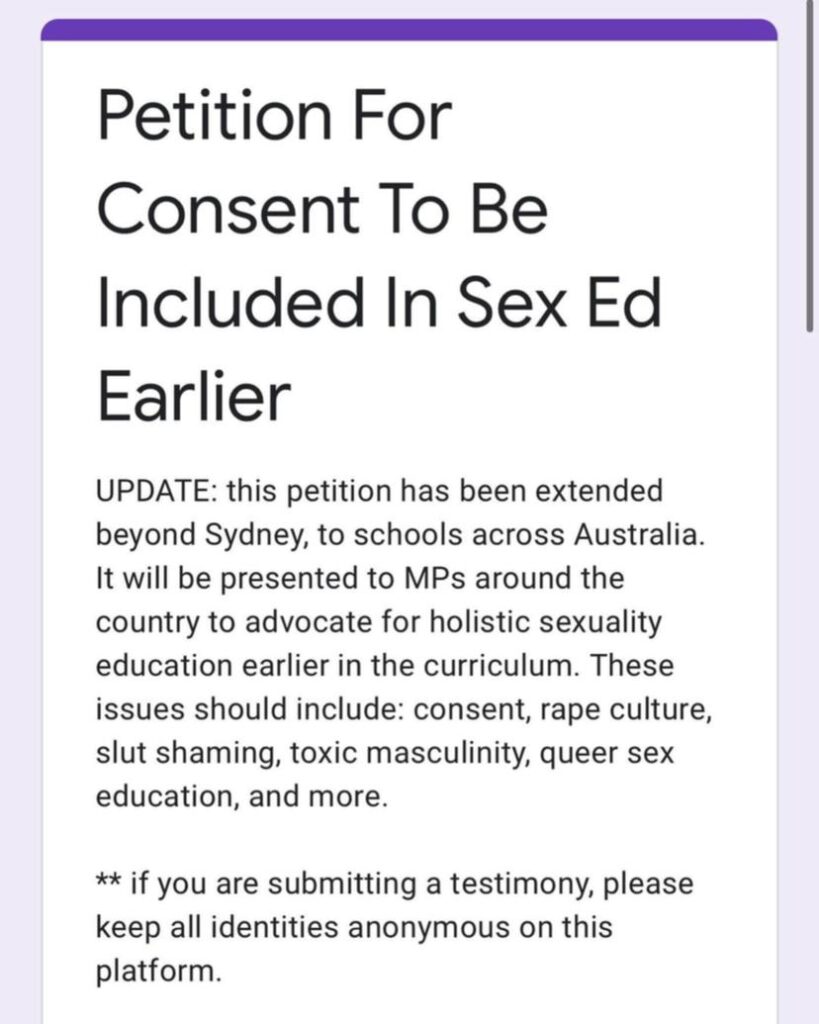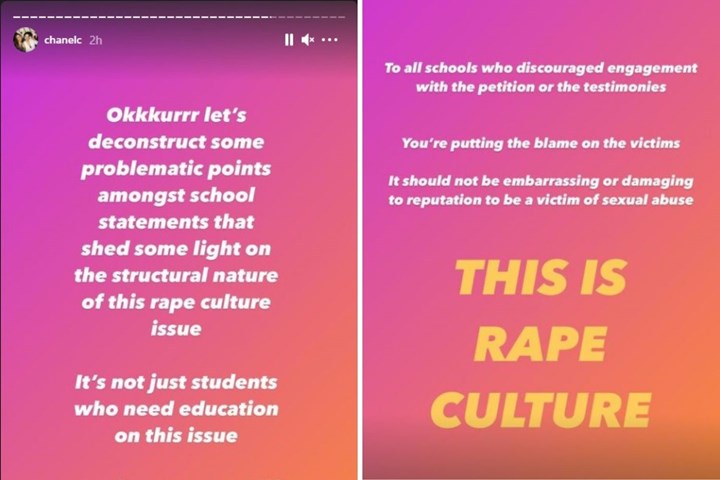*WARNING: This story contains details of sexual assault.
Chanel Contos, a former student of Sydney’s Kambala Girls’ School, has been overwhelmed with hundreds of stories of sexual assault after starting an online petition calling on schools to incorporate a “sexual consent education” much earlier in their curriculum.
The petition went viral when it launched last Thursday, as it also calls for a more “holistic” approach to sexual education, suggesting it address topics such as consent, rape culture, slut shaming, toxic masculinity and queer sex education.
In the days since, the petition has had more than 20,000 signatories and Contos has garnered 1,400 testimonies detailing rapes and assaults among schoolgirls, many from Sydney’s top girls schools, some as young as 13.

One student wrote of her ordeal: “I went to St Catherine’s, he went to Cranbrook. I was 16, I woke up so drunk in his bed with him penetrating me at a party with another couple having sex in the same room… I ran home without my shorts. He returned them the next week. He is now a high profile investment banker.”
Ms Contos, who herself was subjected to sexual assault by a private schoolboy when she was 13, says the testimonies unearth a generation of private schoolboys with a reputation of being self-serving and craving instant gratification.
She tells The Daily Telegraph she decided to take action after a friend confessed she had been assaulted when they were in year nine and after former federal government staffer, Brittany Higgins, alleged a colleague raped her in a Parliament House office in 2019.
“People are sexually active before they reach 16,” she told the Australian media outlet.

“Slut shaming needs to stop and girls being chased because they’re virgins needs to stop – there should be a focus in boys’ schools to acknowledge toxic masculinity.
“Brittany embodies the problem, it shows it goes from all levels, high school to parliament. If sex education and consent were taught earlier, future girls would be safer.”
Multiple schools have since made statements asserting their commitment to addressing the problem and reiterating that they have programs in place to teach consent.
Despite this, Contos tells Marie Claire that she feels some still aren’t getting the message, with many of their statements, she believes, inherently victim blaming and deflecting the issue. Some schools are allegedly discouraging students from sharing their testimonies at all.

“I’ve heard multiple accounts from students at all girls schools in Sydney saying that the schools are asking them not to submit testimonies because it’ll create a bad reputation,” Contos tells the lifestyle magazine.
“It is the essence of victim blaming to say it’s a damage to our reputation to have been sexually assaulted. I don’t think schools realise that they’re perpetuating rape culture by doing that, by thinking that it’s something to be ashamed of.”
In spite of this disappointing initial response, Contos says she’s still been in touch with schools such as Kambala, who have agreed to let her hold a seminar for teachers on rape culture and victim blaming, as well as get her involved in developing content to address structural issues contributing to an unsafe environment.
Going forward, Contos also has plans to launch a website and hopes continued pressure, as well as a more collaborative effort between schools, policy makers and experts, will result in a better educational and cultural outcome.

